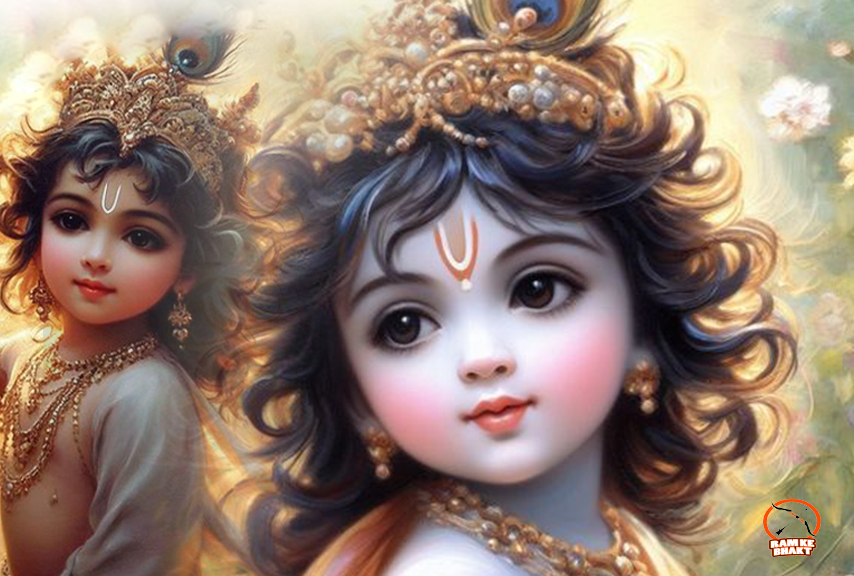
Krishna Janmashtami, also known as Janmashtami or Gokulashtami, is a happy and important Hindu holiday that is enthusiastically observed across India and among the Indian diaspora worldwide. It commemorates the birth of Lord Krishna, one of Hinduism’s most respected and adored deities. According to the Hindu lunar calendar, which is based on the Gregorian calendar, this auspicious occasion occurs on the eighth day (Ashtami) of the Krishna Paksha (dark fortnight) in the month of Bhadrapada, which often corresponds to August or September. We shall explore the cultural importance, customs, and historical background of Krishna Janmashtami in this blog, as well as why it is so dear to so many people.

The Legend of Lord Krishna’s Birth
One must first explore the interesting tale surrounding Lord Krishna’s birth in order to fully comprehend the significance of Krishna Janmashtami. Hindu legend holds that Lord Krishna was born to King Vasudeva and Queen Devaki in the city of Mathura. King Kamsa, his maternal uncle, was a despot who put his sister Devaki and her husband Vasudeva in jail because a prophecy said that Kamsa would perish at the hands of Devaki’s eighth child. Kamsa was resolved to stop the fulfillment of this prophecy.
However, the birth of Lord Krishna was greatly aided by heavenly intervention. In the cell where Devaki and Vasudeva were imprisoned, Lord Krishna was born at the stroke of midnight on Janmashtami. Vasudeva magically transported the baby Krishna across the raging waters of the Yamuna River to the village of Gokul, where he was reared by his foster parents, Nanda and Yashoda, to spare him from Kamsa’s anger.
Preparations and Decorations
Many times, weeks before Krishna Janmashtami, preparations start. Devotees clean and embellish their homes with colorful garlands of fresh flowers and complex rangoli (designs created with colored powders). Exquisite attire and jewelry are used to decorate temples and Krishna statues. Beautifully adorned swings or cradles are used to represent Krishna’s childhood and his period in Gokul.
Making a little cradle, or jhula, for the newborn Krishna statue is another popular home custom. To celebrate the arrival of the heavenly child, this cradle is exquisitely decorated with flowers and swings.
Purity and Fasting
For many devotees, Krishna Janmashtami is incomplete without fasting. They adhere to a strict fast until midnight, which is when Krishna is said to have been born. A lavish feast with a wide range of delectable meals, desserts, and fruits is served to break this fast.
On this day, devotees believe that fasting and upholding mental and emotional chastity will enable them to receive Lord Krishna’s blessings and heavenly favor. During the day, it is customary to sing devotional songs and read portions from the Bhagavad Gita, a holy book in which Lord Krishna dispenses spiritual knowledge.
Midnight Celebration
The midnight ceremony, which commemorates the precise moment of Lord Krishna’s birth, is the most eagerly awaited part of Krishna Janmashtami. Bells ringing, singing, and chanting of Krishna’s name fill the air in temples and households. As worshippers excitedly anticipate the advent of the auspicious time, the atmosphere is exhilarating.
The Lord Krishna statue is given a milk-and-honey bath at midnight, signifying his heavenly birth. Then, devotees break their fast and give everyone in attendance prasad (holy food offerings). Dance performances play on Krishna’s life, and devotional music is all part of the festivities that go into the wee hours of the morning.

The Matki Phod Tradition: Dahi Handi
The “Dahi Handi” or “Matki Phod” ceremony is one of the most well-known and exciting customs related to Krishna Janmashtami. This custom recreates the childlike and mischievous behavior of young Lord Krishna, who was well-known for robbing the local gopis’ (milkmaids’) pots of butter and curd.
A clay pot containing buttermilk or curd is held at a considerable height during the Dahi Handi ritual. As “Govindas,” groups of young men build human pyramids to reach and smash the pot. This custom serves as a representation of harmony, cooperation, and tenacity in addition to being a fun and lively activity. The group that successfully cracks the pot receives awards and cheers from the audience.
How Important Krishna Janmashtami Is
Krishna Janmashtami is highly significant to Hindus and people of Indian origin worldwide both spiritually and culturally.
1. Honoring the divinity:
The occasion of Krishna Janmashtami honors the holy incarnation of Lord Krishna. Hinduism regards Lord Krishna as the Supreme God who came to Earth to bring back dharma (righteousness) and lead mankind.
2. Krishna’s Life Lessons
The Shrimad Bhagavad Gita’s account of Lord Krishna’s life and teachings offers tremendous knowledge and direction for leading a good and meaningful life. Millions of people are still motivated by his lessons on responsibility, commitment, and the quest for spirituality.
3. Cultural cohesion:
Regional and cultural barriers are irrelevant to Krishna Janmashtami because it unites people from all walks of life in their love and devotion to Lord Krishna. It fosters a sense of community cohesion and solidarity.
4. Family Bonding:
Families are encouraged to gather for prayers, ceremonies, and feasting during the celebration. It improves ties within families and offers a chance for tradition-passing from one generation to the next.
5. Display of Educatedness:
Through fasting, prayer, and singing, devotees use this occasion to strengthen their devotion to Lord Krishna. It’s an opportunity for introspection and spiritual development.
6. Joy and Festivity:
Krishna Janmashtami is a joyful holiday celebrated with raucous revelry, music, dancing, and the exchange of treats. It makes individuals happy and enables them to escape the difficulties of life.

Conclusion
The celebration of Krishna Janmashtami is not only a religious one but also a manifestation of Indian spirituality and tradition. The myth surrounding the birth of Lord Krishna serves as a constant reminder of the need for love, compassion, and morality in human life. Devotees find comfort, inspiration, and a renewed sense of purpose in their devotion to Lord Krishna as they gather to commemorate this auspicious day. Whether breaking the Dahi Handi, taking part in midnight ceremonies, or just hanging out with loved ones, Krishna Janmashtami is a time to celebrate, contemplate, and establish a spiritual connection. The triumph of good over evil, the way of righteousness, and the limitless power of love are the themes of this celebration of Lord Krishna’s timeless and global message.



